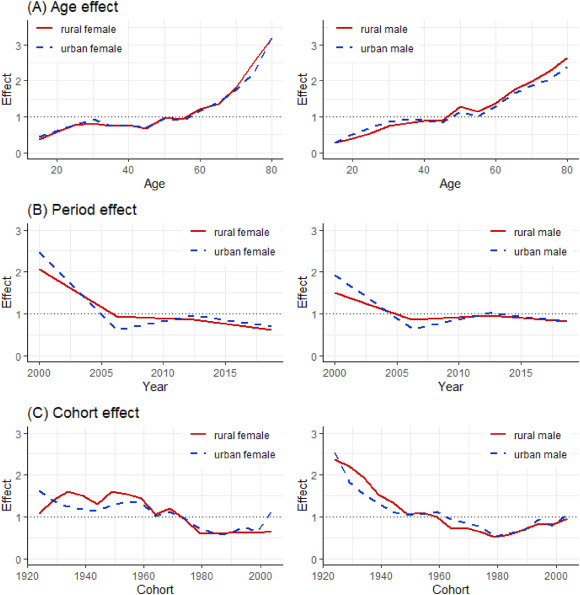
# Disturbing New Research Reveals Suicide Rates Among Young Male Cancer Survivors Aged 15-39 Have Tripled Over Two Decades
### Young Male Cancer Survivors Encounter Elevated Suicide Risk Compared to Other Groups
A disconcerting new study published in *JAMA Network Open* has revealed a troubling rise in suicide fatalities among young male cancer survivors. Investigators from the USC Norris Comprehensive Cancer Center evaluated data from more than 4.5 million cancer survivor deaths over the last twenty years and found that the suicide rates among males aged 15 to 39 have surged threefold, highlighting the pressing requirement for enhanced mental health support.
The findings indicate that suicide deaths in this demographic escalated from 4.9 per 1,000 deaths in 2000 to a staggering 15.4 per 1,000 deaths in 2021. By 2021, nearly one in 65 deaths among young male cancer survivors was linked to suicide, emphasizing critical deficiencies in psychological care and support for this population.
### Elevated Incidence in Easily Survivable Cancers
One particularly alarming aspect of the study was the pronounced suicide risk among survivors of cancers that typically have good survival rates. Specifically, survivors of thyroid cancer, testicular cancer, and skin melanomas—cancers with generally positive outcomes—exhibited the most significant rises in suicide rates.
This perplexing pattern indicates that surviving cancer, especially types with high survival rates, does not alleviate the long-lasting emotional challenges that can persist after remission. In fact, many survivors continue to battle the psychological effects related to their illness and treatment long into their survivorship.
### Prolonged Mental Health Consequences
The increasing incidence of suicide among cancer survivors reveals that treatment plans often emphasize physical healing while neglecting the necessary psychological support that should accompany survivorship. Particularly alarming is that a substantial number of these suicides occurred years after the initial cancer diagnosis, frequently when the survivors were no longer receiving active medical care.
“The disparity between young men and other groups has markedly widened over time,” the researchers pointed out. By 2021, suicide rates among different age and gender demographics were significantly lower, falling between 0.6 and 7.4 per 1,000 deaths. This indicates that young male cancer survivors in the 15-39 age bracket confront a distinct set of challenges that current healthcare models inadequately address.
### A Crucial Call for Holistic Mental Health Support
Although advancements in cancer treatment have certainly enhanced survival rates across the board, the study exposes the considerable emotional and psychological toll that often follows—particularly for young men. Numerous male AYA (Adolescent and Young Adult) cancer survivors struggle with feelings of isolation, uncertainty regarding their futures, and challenges in returning to everyday life, all of which can result in mental health crises that may lead to suicide.
Cancer survivors frequently undergo significant transformations in their identities and grapple with persistent trauma associated with their illness and treatment. For younger men, this struggle can be exacerbated by societal expectations and stigmas related to masculinity, mental health, and emotional vulnerability.
The study’s results encourage healthcare practitioners to prioritize not only the physical recuperation of cancer survivors but also to implement comprehensive psychological and emotional care strategies. This encompasses combining oncology treatment with mental health services throughout a survivor’s journey, not limited to the initial treatment phase.
### Distinct Challenges Encountered by AYA Cancer Survivors
Research has consistently shown that the AYA cancer demographic—individuals aged 15 to 39—faces unique hurdles when compared to both younger pediatric patients and older adults. This group is navigating a pivotal period in their emotional, psychological, and social development when diagnosed with cancer, increasing the complexity related to the side effects of treatment and survivorship issues.
Side effects like fertility issues, chronic pain, fatigue, and the ongoing dread of cancer recurrence can greatly diminish the quality of life for young survivors. Even when the cancer is successfully treated, these individuals can experience social isolation and ongoing emotional distress from their experiences.
Young survivors might feel ill-prepared to reintegrate into “normal life” after completing treatment. This can foster feelings of alienation, leading to hopelessness and despair, which contribute to the heightened risk of suicide in subsequent years.
### Tackling the Mental Health Crisis in Cancer Survivorship
The outcomes of the study underscore the critical need for innovative strategies and support networks that cater to the emotional wellness of cancer survivors. For instance:
– **Regular long-term psychological evaluations:** Since many suicides transpire years after diagnosis or treatment, cancer survivors should receive ongoing mental health assessments as part of their continuous care, regardless of cancer type or stage.
– **Integration of mental health resources in survivorship plans:** While numerous cancer centers emphasize physical rehabilitation for survivors, they often overlook psychological support. Merging counseling, cognitive